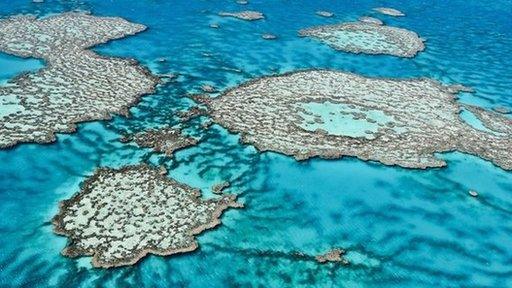Unesco delays 'endangered' Great Barrier Reef decision
- Published
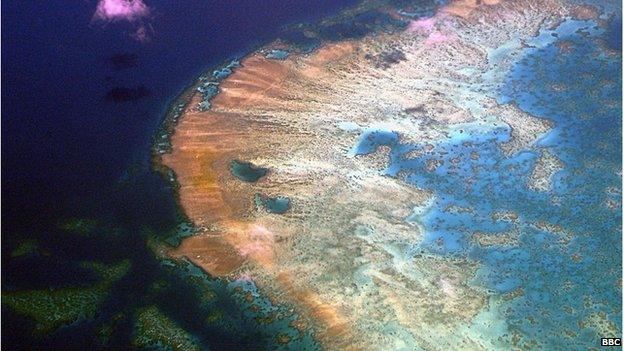
The Great Barrier Reef stretches for more than 2,600km (1,680 miles) along Australia's eastern coast.
Unesco has delayed a decision on whether Australia's Great Barrier Reef should be declared as endangered.
The UN's cultural body reminded Australia that it must submit an updated report on the reef's state of conservation by 1 February 2015.
The decision comes amid continued controversy over a plan to dump dredged sediment in the reef's marine park.
Both the Australian government and environmentalists have declared victory over the decision.
In a statement on Wednesday, Unesco said it was concerned about "planned coastal developments, including development of ports and liquefied natural gas facilities".
Kishore Rao, from Unesco's World Heritage Centre, said the organisation welcomed Australia's progress in managing the reef.
Queensland's environment minister Andrew Powell called the deferred ruling a "win for logic and science rather than rhetoric and scaremongering".
He told Australia's ABC, external: "I am extremely comfortable that we will tick all the boxes that Unesco is seeking us to tick."
Meanwhile the Australia arm of environmentalist group WWF said, external the UN body had "put Australia firmly on notice" to take stronger action to protect the reef.
"This is a victory for the millions around the world who say our reef is not a dump," said campaigner Richard Leck.
But local media report that the Australia government does not intend to halt its planned dumping of three-million cubic tonnes of dredge sediment.
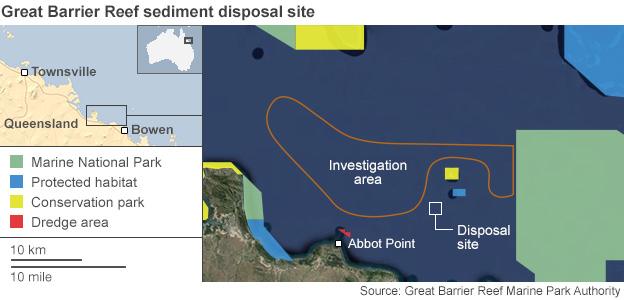
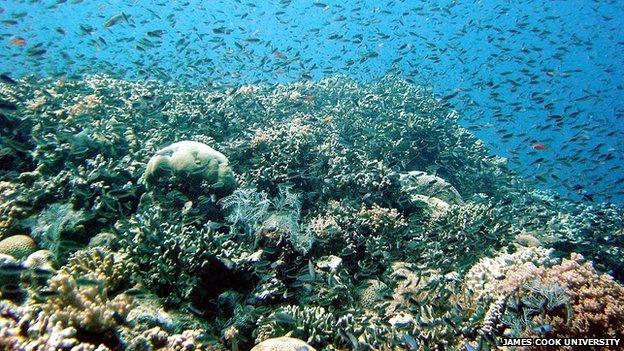
The Great Barrier Reef is the world's largest coral structure and home to rich marine life
Reef authorities granted permission for the dumping in January as part of a project to create one of the world's biggest coal ports.
Unesco later warned that the reef could be put on its World Heritage in Danger list, given the range of "significant threats" affecting the reef.
Australian officials have stressed that the project has been downsized to one-twelfth the size of what was previously proposed.
The government has also promised to meet a requirement that the water quality be improved.
Scientists have warned that the sediment could smother or poison coral.
The Great Barrier Reef is the world's largest coral structure, rich in marine life.
It stretches for more than 2,600km (1,680 miles) along Australia's eastern coast, containing 400 types of coral, 1,500 species of fish and 4,000 types of mollusc.
- Published1 May 2014
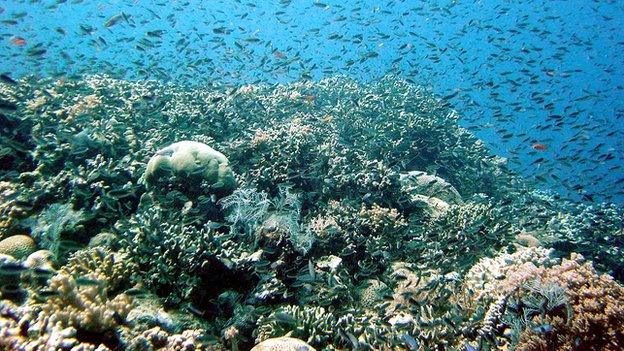
- Published31 January 2014

- Published17 January 2014
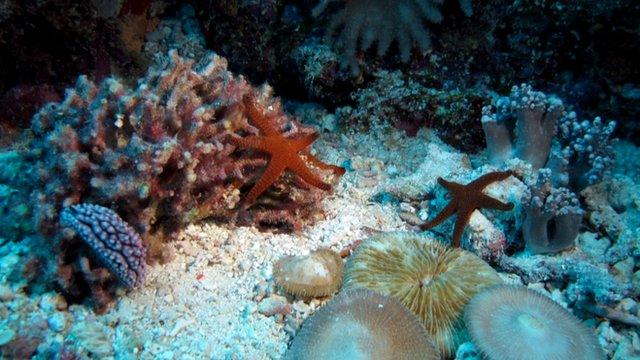
- Published21 August 2013
